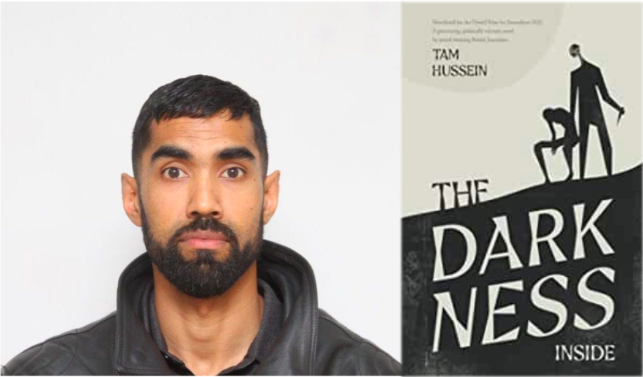How did you get into journalism?
I always wanted to be a journalist, but it’s kind of accidental the way I got into journalism. I was in Damascus for many, many years, then I returned to the UK to do my Master’s. The plan was to return to Syria, but I had kids—my firstborn was on the way, my wife was in London, and then the uprising began in Syria and the Arab Spring happened. I spoke several languages, which gave me an opportunity, sadly I suppose. I jumped on it. I’d done some journalism in Syria while I was there, and then I got into journalism by covering the Syrian conflict both inside and outside.
Then from there, people picked up a lot of articles. So I decided to go all in on the coverage of Syria. I really looked up to guys like Rageh Omaar who had also cut their teeth in Iraq when they were young. I also realized at the time that you had to work harder than everyone else, that’s just the way it was. Just because of the impediments that humans face, especially coming from minority backgrounds. That’s just a fact of life.
I found that I had a knack for it, especially with people. I love people, I love finding out about their lives. So I built up a portfolio over time—it wasn’t just ‘oh, I’m gonna be a journalist now’. I was writing regularly while I was doing a master’s as well. I had a presence, my work was becoming known already. So when Syria and the Arab Spring happened, I was already writing creatively and had been published a bit as well. So in a way, it was thought through; but when I decided to go into it full time, I put everything into it. You can’t be 50/50 in this game.
What about fiction?
I decided to become a writer of fiction at a very young age, probably 17 or 18. When my mum got rid of the TV I started to read a lot, absorbed absolutely everything. Then I came across a literary agent who said ‘look, we have a lot of people write really well, but don’t have a lot of life experience’. I’d come across Hemingway’s life, and wanted to do what he did. I lived in the Middle East to work at my craft, because that’s what I wanted to be. So journalism is a sideshow, but writing [fiction] is a full-time gig for me. I’ve been working on that for probably about 20 years. I’ve had a lot of short stories published as well as novellas and nonfiction, but really that’s where my heart it.
With regards to Darkness Inside, that took me about 2 years to write from start to finish, but the material I’d been collecting for many years, really from the revolution. Originally I’d wanted to write a nonfiction book documenting what was going on in Syria, but I realized with a lot of terror laws in the UK that was not possible. Instead, I decided to put what I believe is very real into a fictional story, to illustrate the truths of some of these issues. I used a vehicle of fiction to illustrate these truths.
Do you have any advice for others interested in breaking into writing?
Don’t compromise your principles for a story. That’s one major thing I’ve come to learn. Secondly, one of the big lessons I’ve learned is: don’t be so sure of yourself. A lot of people are very, very sure of their principles and opinions when they’re 30 or 20, but when you’re older you’ll start doubting a lot of what you thought were truths or absolutes. That’s one of the biggest things for me: nothing is fixed. I’m not so sure about things.
I’m not so sure that’s about doubt, but rather the realization that the world is bigger than you. Things aren’t always black-and-white. The reasons people do things aren’t always as clear. Absolute evil, absolute good…these things don’t really exist. As human beings, we are contradictions and we are motivated by many, many different reasons. That’s the lesson I take from it, and I try not to judge.
What are you working on now?
At the moment I am working on a piece of fiction, but I’m also working on a piece of nonfiction, a biography with a quite well-known Afghan politician. I hope to bring those two to fruit by the end of the year.
Check out Tam Hussein on New Lines Magazine. Read The Darkness Inside here.



